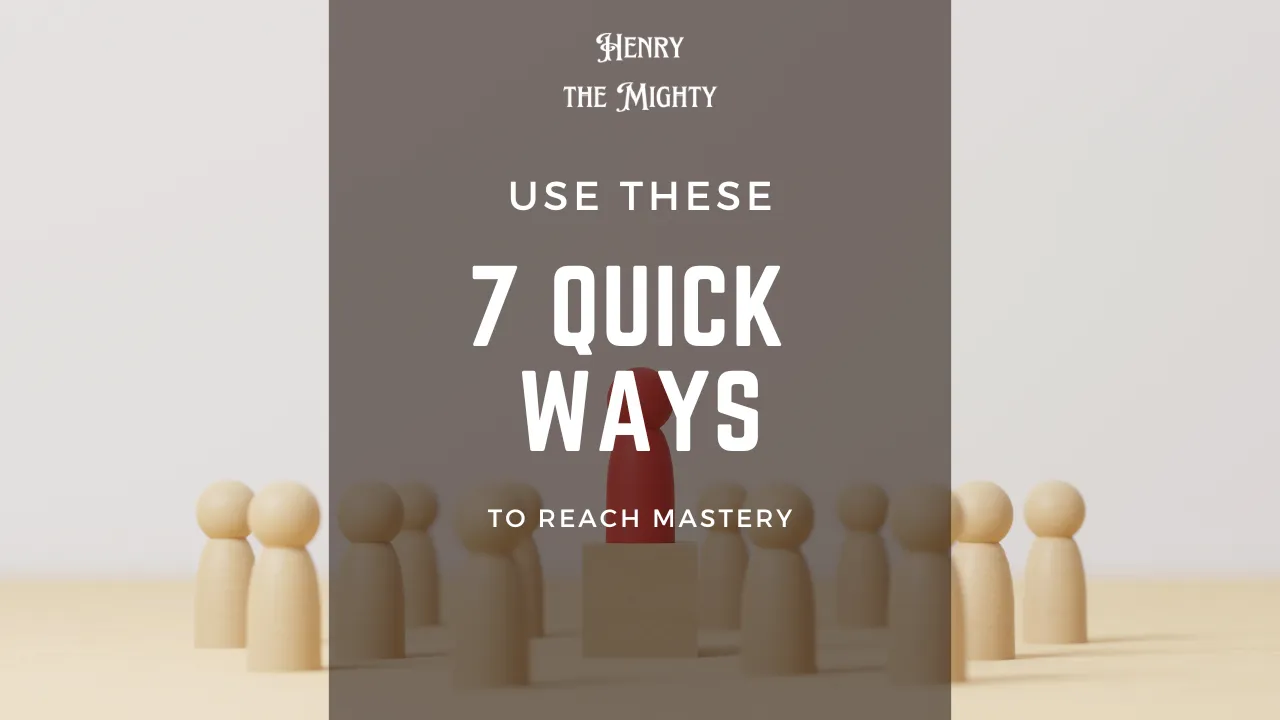Italian version below ...

Mastery in any art takes:
- discipline
- experience
- study
While there are no real shortcuts, there are practical ways to optimize in order to reach excellence.
Way 1: conscious practice
Practice often becomes routine.
Routines "turn off" our brains so we can think about other things while going through the motions.
Make an effort to keep your brain "on" during every routine, and you'll improve faster.
Way 2: develop your system
To improve both my storytelling skills and acting skills, I write my stories through dictation.
I pick a topic, I write it and I let software do the transcription work.
It's not something everyone can do; it is a system that I developed from my specific skills and objectives.
Way 3: analyze and emulate the greats
Look at the great artists in your field.
What do they do? How do they do it?
Analyze them and try to imitate their process as part of your own.
Way 4: step outside your comfort zone
It's easy, after years of experience, to hide in your comfort zone.
That's normal: our brain wants to get the most with the least effort.
Consciously find new ways to push your own boundaries and limitations.
Way 5: develop complementary skills
A storyteller is not just a writer.
He is a businessperson, a manager of himself, a musician, an actor, a painter...
What skills complement the one you want to master?
Way 6: keep a journal
Write everything down: what you learn, your new experiences, your insights...
It is proven that keeping a journal reinforces everything you write about and makes you master things faster.
Way 7: take breaks
The same way bodybuilders need to take breaks to allow their muscles to recover, you need to take breaks from practice.
While taking a break, your brain relaxes and has time to build neural networks around your new experiences.
🇮🇹 🇮🇹 🇮🇹 🇮🇹 🇮🇹 🇮🇹
Versione Italiana
🇮🇹 🇮🇹 🇮🇹 🇮🇹 🇮🇹 🇮🇹
La maestria in qualsiasi arte richiede:
- disciplina
- esperienza
- studio
Sebbene non esistano vere e proprie scorciatoie, ci sono modi pratici di ottimizzare per raggiungere l'eccellenza.
Via 1: pratica consapevole
La pratica spesso diventa routine.
La routine "spegne" il nostro cervello per permetterci di pensare ad altro mentre eseguiamo le operazioni.
Sforzati di tenere il cervello "acceso" durante ogni routine e migliorerai più velocemente.
Modo 2: sviluppa il tuo sistema
Per migliorare le mie capacità di narrazione e di recitazione, scrivo le mie storie sotto dettatura.
Scelgo un argomento, lo scrivo e lascio che sia un software a fare il lavoro di trascrizione.
Non è una cosa che possono fare tutti; è un sistema che ho sviluppato a partire dalle mie capacità e dai miei obiettivi specifici.
Modo 3: analizzare ed emulare i grandi
Guarda i grandi artisti del tuo settore.
Cosa fanno? Come lo fanno?
Analizzali e cerca di imitare il loro processo come parte del tuo.
Via 4: esci dalla tua zona di comfort
Dopo anni di esperienza è facile nascondersi nella propria zona di comfort.
È normale: il nostro cervello vuole ottenere il massimo con il minimo sforzo.
Trova consapevolmente nuovi modi per superare i tuoi confini e i tuoi limiti.
Via 5: sviluppare competenze complementari
Un narratore non è solo uno scrittore.
È un imprenditore, un manager di se stesso, un musicista, un attore, un pittore...
Quali sono le abilità complementari a quella che vuoi padroneggiare?
Modo 6: tieni un diario
Scrivi tutto: ciò che impari, le nuove esperienze, le intuizioni...
È dimostrato che tenere un diario rafforza tutto ciò che scrivi e ti fa acquisire più velocemente la padronanza delle cose.
Modo 7: fai delle pause
Allo stesso modo in cui i bodybuilder hanno bisogno di fare delle pause per permettere ai loro muscoli di recuperare, anche tu devi fare delle pause dall'allenamento.
Durante le pause, il tuo cervello si rilassa e ha il tempo di costruire reti neurali intorno alle nuove esperienze.